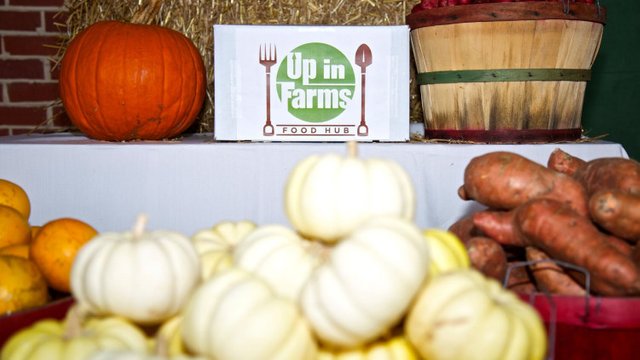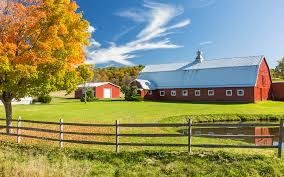Introduction
The idea sustainable farming started last century and has become more popular in our present days.
What is sustainable farming?
Sustainable farming is the farming system that is closest to natural process, minimizes waste, does less damage to the environment and yet it’s still profitable.
When a farm system is sustainable, the product of the farm will be nutritious, and not contaminated by substance that maybe unsafe for humans to consume. Sustainable farming systems are set in order to maximize advantage of the existing soil nutrients, soil organism and energy flow and water cycles.
Sustainable farming includes being sustainable in agricultural production, sustainable in rural economy and society and being sustainable in environmental and ecological agricultural system.
Background/Problem description
From a sustainable agricultural point of view in the Nigeria, one of the main constraints is the agricultural system, which has slow response to technology adoption when it comes to agriculture, low productivity, low return of investment and rural poverty Agricultural commercialization and investment are some key strategies for promoting, modernizing and attaining a sustainable growth and development.
Lack of Development
Lack of development in general is a problem when it comes to Agriculture. The lack of development include: social development (development relating her people and the country), economic development (development relating finance and wealth of the country), and environmental development (development relating to quality of the air, water, soil etc), and political development (development relating to political system).
Marketing problem
Marketing involves the conveying of agricultural product from farmers to consumers. Some of the problems of marketing affecting the Nigeria agricultural system include poor transportation means, poor packaging and poor quality.
Methodology
Data obtain for this thesis was mainly obtain from a different sources. These data includes publications from banks, economics, statistic bulletin, books, publish thesis, internet source, and annual reports.
Brief Suggestion/advice to farmer
Here are some suggestions/ advice to farmers on possible solution relating to farm products and by-products such as sewage or waste water, organic waste, and the energy used in the farm. The advice include why farm product and by-product should be used in the farm and how farms could produce less waste and be recycled within the farm area.
Using of organic waste in a farm can increase soil stability, organic matter content in the soil and therefore increase resilience to changing climate conditions. Organic waste has more species on average when compare to than conventional farmland, thereby contributing to the
safeguarding of ecosystem services from pollination and nutrient recycling to clean water and air.


We @farms find this post very educative and informative, we will love to know more about this Sustainable farming.... enlighten us more on how to imply this on homestead.
Resteem
(to be a part of this community; ensure to always use #farms and #steemchurch for agricultural related post)
Downvoting a post can decrease pending rewards and make it less visible. Common reasons:
Submit
https://steemit.com/farms/@kwadjobonsu/steemchurch-farms-mushroom-farming-in-ghana-for-starters
#farms #steemchurch
Downvoting a post can decrease pending rewards and make it less visible. Common reasons:
Submit
The concept of sustainable agriculture embraces a wide range of techniques, including organic, free-range, low-input, holistic, and biodynamic.

The common thread among these methods is an embrace of farming practices that mimic natural ecological processes. Farmers minimize tilling and water use, encourage healthy soil by planting fields with different crops year after year and integrating croplands with livestock grazing, and avoid pesticide use by nurturing the presence of organisms that control crop-destroying pests.
Downvoting a post can decrease pending rewards and make it less visible. Common reasons:
Submit
We @farms find this post outstandingly educative and informative, Agriculturists confine working and water use, bolster sound soil by planting fields with different harvests an apparently interminable measure of time and fusing croplands with trained creatures snacking, and keep up a vital separation from pesticide use by supporting the closeness of life frames that control trim destroying bugs.
Downvoting a post can decrease pending rewards and make it less visible. Common reasons:
Submit
Indeed when a farm is substainable the producxt in the farm would be nutriteous. You have taught us that the use of organic waste from animals can be use to increase the growth of plants in the farm. Nice post.
Thanks should be given to @steemfarm for this opportunity.
Downvoting a post can decrease pending rewards and make it less visible. Common reasons:
Submit
For sure when a homestead is substainable the producxt in the ranch would be nutriteous. You have shown us that the utilization of natural waste from creatures can be use to expand the development of plants in the ranch. Pleasant post.
We @farms discover this post exceptionally educative and instructive, we will love to find out about this Sustainable farming.... edify us more on the most proficient method to suggest this on residence.
Downvoting a post can decrease pending rewards and make it less visible. Common reasons:
Submit
We @farms discover this post exceptionally educative and instructive, Agriculturists limit working and water utilize, support sound soil by planting fields with various harvests a seemingly endless amount of time and incorporating croplands with domesticated animals nibbling, and maintain a strategic distance from pesticide use by sustaining the nearness of life forms that control trim devastating bugs.
Downvoting a post can decrease pending rewards and make it less visible. Common reasons:
Submit
Without a doubt when a homestead is substainable the producxt in the ranch would be nutriteous. You have shown us that the utilization of natural waste from creatures can be use to build the development of plants in the homestead. Decent post.
Downvoting a post can decrease pending rewards and make it less visible. Common reasons:
Submit
The common thread among these methods is an embrace of farming practices that mimic natural ecological processes. Farmers minimize tilling and water use, encourage healthy soil by planting fields with different crops year after year and integrating croplands with livestock grazing, and avoid pesticide use by nurturing the presence of organisms that control crop-destroying pests.
Downvoting a post can decrease pending rewards and make it less visible. Common reasons:
Submit